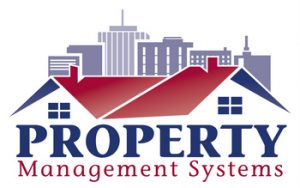Just getting started with owning rental properties? If so, you’re making a smart choice! In 2017 rental properties are still one of the best ways to build long term cash flow and wealth but once your rental property is easy to be rented you may find yourself being asked common questions by prospective tenants.
Top Questions By Prospective Tenants
1. How much are rent and deposits, and how do I pay rent?
Prospects occasionally see outdated listings with old price points. Make sure you know current amounts for rent and deposits when you engage with prospects. You must also keep a standardized policy for the way your property handles those who bring in expired pricing offers. For compliance purposes, stick to this policy for all prospects.
It’s also important to clarify how tenants can pay rent. An online rent payment system is of tremendous value to tenants, as it allows them to pay by credit card, electronic check, ACH and more at no cost to your company. Offering a range of payment options helps to reduce late rent payments.
If you charge a non-refundable deposit (assuming it’s legal in your state), make it clear in the lease. Though the tenant is responsible for reading the lease thoroughly, consider emphasizing this fact before they sign.
You should also anticipate encountering prospects who will try to bargain or haggle. They might hope for a slightly discounted rent – say $100 per month – after hearing the average utility costs. Rather than getting caught off guard, consider beforehand if you’re willing to drop rent on the unit. Think of other contingencies as well, such as accepting a somewhat lower rent if they’ll sign a longer lease, which leads to…
2. Will you accept a shorter lease, or can we pay less if we’ll sign a longer lease than you’re asking for?
Property managers commonly want a minimum of a one-year lease, but what happens when a four-month vacancy has a prospect inquiring about a six-month lease? Decide the terms you will accept in advance and keep them consistent. Ideally, your community should develop a specific policy and hold to it. You should also have some idea as to whether you’ll drop the rent if the prospect signs a lease longer than your minimum requirement or, alternatively, guarantee the rate will not rise.
3. Do you allow pets? How about exotic pets?
You likely have a firm policy, as well as related deposits and pet rents, concerning dogs and cats. However, people keep everything from lizards to ferrets to sugar gliders (yes that is the name of a real animal). Develop a consistent and comprehensive approach to exotic pets for prospective tenants who ask about them. Keep in mind that while some can damage properties, others are fairly innocuous and unlikely to leave any lasting record of their stay. If you do allow cats, dogs or other animals you feel might compromise the property, clearly spell out the consequences of any damage (from charges to eviction notices) in the lease.
4. What’s your tenant screening process?
Some people will seek more information regarding your screening process. If you use tenant screening, you can familiarize yourself with the criteria and databases the company uses.
People familiar with credit checks may also ask if your community performs a hard or soft inquiry given that hard inquiries have an impact on credit scores.
To avoid Fair Housing problems, always clarify that you use an objective screening system based purely on numbers. Never make decisions based on race, religion or other controversial factors. Working with a screening service that uses objective methods will also help ensure compliance.
5. When is our move-in date?
This question takes many forms, ranging from those who want to move in immediately to those hoping you’ll hold the unit for 45 days. To combat misaligned target dates, a proactive property manager will have this conversation at the very beginning of the process to keep from wasting their own time and that of their prospects.
6. Have others shown interest in the property?
This one can prove a bit tricky. Admitting a unit has received little interest will, at best, lead a prospect to believe they have ample time to shop around and, at worst, make them wonder what awful thing about the unit they’ve overlooked. With this in mind, you may choose to say, or at least imply, that you’re fielding multiple inquiries into the property.
7. Do you allow subletting?
As you know, some renters sublet properties without even asking, most commonly by moving co-renters into part of the property for partial rent. Others might sublet their places while out of town. As with other issues – such as pets – you should develop a clear policy with guidelines spelled out in the lease. If you don’t allow subletting, include the consequences for infractions. If you do allow it, cover aspects such as any screenings and signed agreements you need from the subletters. Consider holding a conversation with the prospect about subletting as well instead of trusting it to the lease documentation alone. You don’t want misunderstandings about who can live in the unit.
8. Can I list on Airbnb?
With the rise of sharing economy outlets, prospects might seek permission to list the unit, or a portion of it, on a website such as Airbnb. Stay ahead of the trend by instituting a straightforward process for handling the situation. If you decide to allow it, ensure the tenant understands that they remain ultimately responsible for any damage to the unit, and put it in writing.
9. What happens if we move out early?
Your community probably has a procedure for those who vacate before the end of the lease agreement. These renters might need to pay a set penalty such as two months’ rent, or your community may require renters to continue paying rent until you find a new tenant. Ensure you comply with any laws in your area pertaining to this process.
10. Will I be able to renew the lease, or go month to month, after it ends? Will the rent go up?
Offering tenants flexibility after the initial lease sweetens the deal, but it can also tie your hands if you have plans for the property. If you know in advance that you want a renewal at the same rate, then by all means use it to entice the prospect. The same goes for month-to-month agreements, but provide a concrete expectation for advanced move-out notifications, etc.
11. What’s the parking situation?
Though self-explanatory for many properties, you can bet prospects in crowded cities will want to know where they and their guests can park. You might not know the answer without speaking to current tenants, but try to be honest about this.
12. How’s the crime in the area?
While the due diligence of researching the neighborhood ultimately falls on the prospect, they may try to defer to your knowledge of the area. If you plan to build a positive working relationship with a tenant, answer as honestly as possible. You don’t want someone to let their guard down and have their bicycle stolen from the backyard (or worse) because you downplayed the crime rate in order to secure a lease. If you find yourself uncomfortable responding to questions on the topic, you can always refer the person to a more official keeper of crime statistics, such as local law enforcement.
13. What kind of notice do you give before you or someone else enters the property?
For a number of reasons, you, a service person or someone else might need to get inside the home. To minimize the time the unit spends vacant, you will probably want to start showing it to new prospects after the current tenant has given notice but before they’ve moved out. You can head off irritation and misunderstanding by providing a simple process for entering the unit up front. The standard in most instances is a 24-hour notice.
Get Property Management Here
For professional property management for your Portland Oregon Rental Property contact property management systems today by calling us at (503) 515-3170 or click here to connect with us online.





